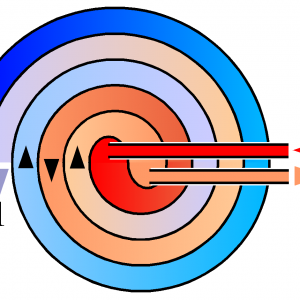E – 1141 Engineering Ethics-NSPE Code of Ethics for Engineers
$50.00
Courses Included
Engineers practicing their profession encounter not only technical issues but also ethical issues. Sometimes the latter issues are easy to resolve: applying everyday, common-sense notions of honesty, openness, responsibility, and lawfulness is sufficient to guide the engineer to the appropriate decision. At other times, however, matters are more complicated. In particular, knowing what to do when two or more duties or obligations conflict can be difficult. For example, an engineer’s duty to his client or employer may conflict with the engineer’s duty to the general public. Codes of ethics have been formulated to help engineers address these conflicts. The present course introduces engineers to the National Society of Professional Engineers Code of Ethics. The Code provides ethical guidance to engineers in their various and often simultaneously held roles as 1) guardians of public health, safety, and welfare 2) employees, 3) employers, and 4) providers of technical service to clients.
The course materials are based on the NSPE Code of Ethics for Engineers, which may be downloaded from or viewed at http://www.nspe.org/Ethics/CodeofEthics/index.html
(Reprinted by Permission of the National Society of Professional Engineers (NSPE) www.nspe.org.)
Description
Engineers practicing their profession encounter not only technical issues but also ethical issues. Sometimes the latter issues are easy to resolve: applying everyday, common-sense notions of honesty, openness, responsibility, and lawfulness is sufficient to guide the engineer to the appropriate decision. At other times, however, matters are more complicated. In particular, knowing what to do when two or more duties or obligations conflict can be difficult. For example, an engineer’s duty to his client or employer may conflict with the engineer’s duty to the general public. Codes of ethics have been formulated to help engineers address these conflicts. The present course introduces engineers to the National Society of Professional Engineers Code of Ethics. The Code provides ethical guidance to engineers in their various and often simultaneously held roles as 1) guardians of public health, safety, and welfare 2) employees, 3) employers, and 4) providers of technical service to clients.
The course materials are based on the NSPE Code of Ethics for Engineers, which may be downloaded from or viewed at http://www.nspe.org/Ethics/CodeofEthics/index.html
(Reprinted by Permission of the National Society of Professional Engineers (NSPE) www.nspe.org.)
- The six Fundamental Canons of the Code
- The five Rules of Practice
- The nine Professional Obligations
- Definition of “Sustainable Development”
- The scope of the Supreme Court decision regarding NSPE, competitive bidding, and antitrust law






